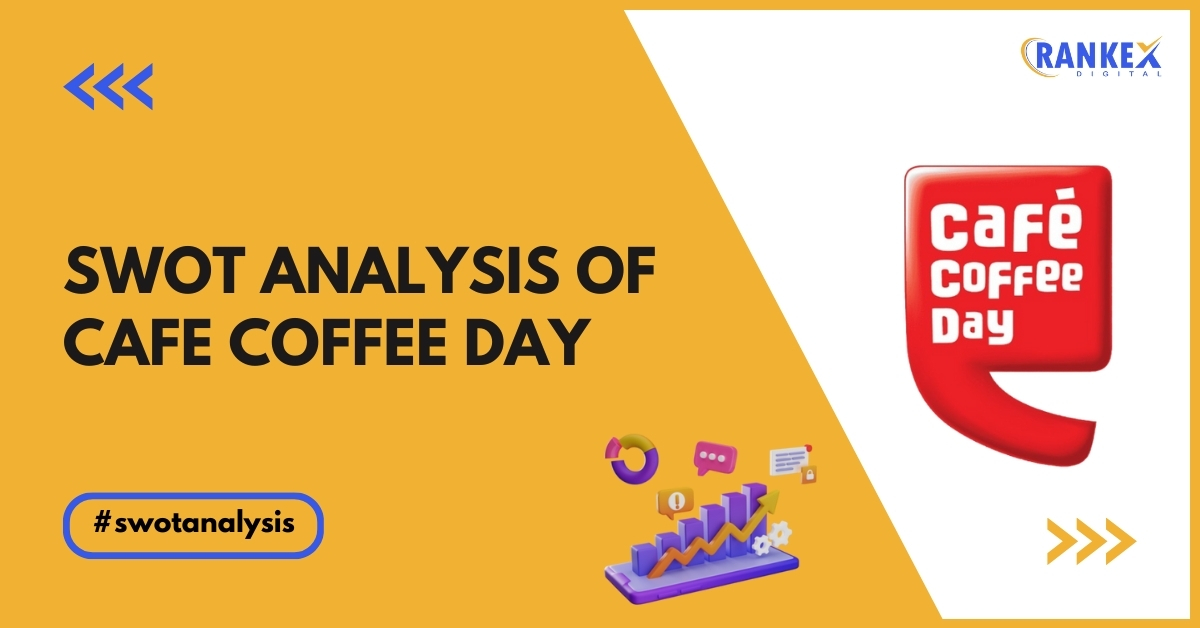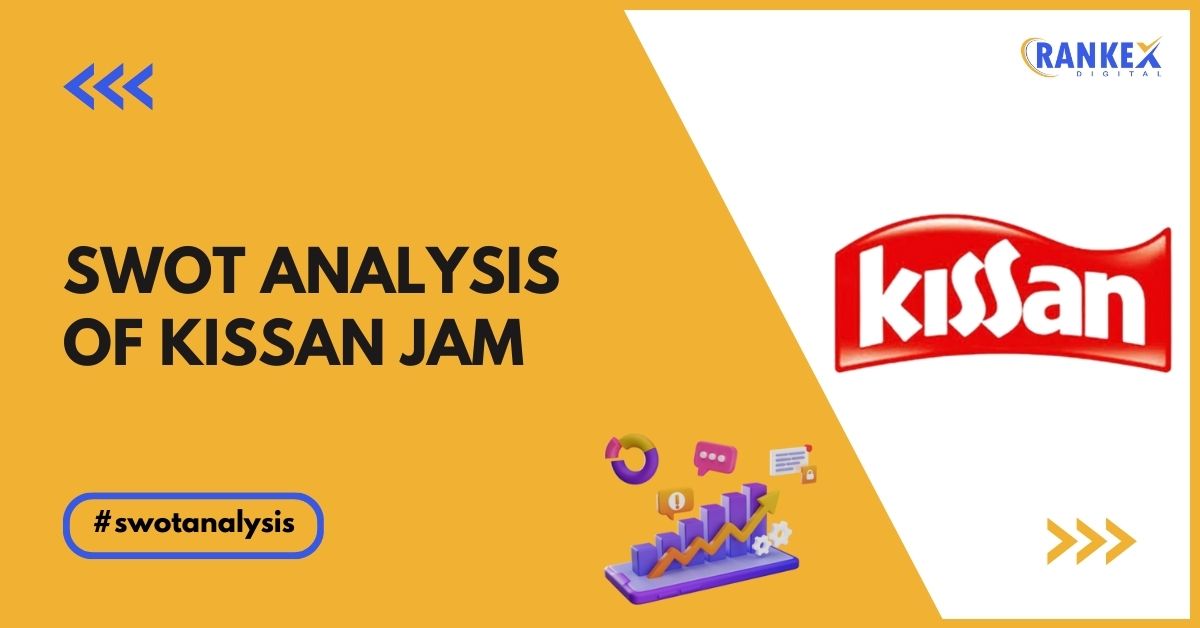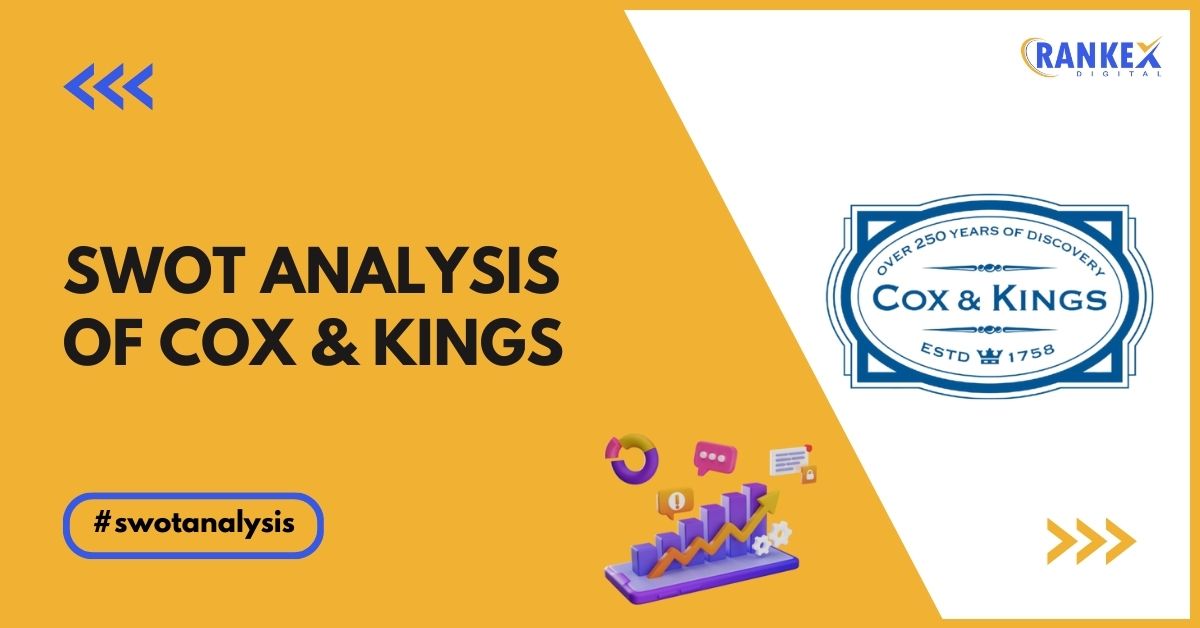Café Coffee Day (CCD) is one of India’s most well-known coffee chains, with a strong brand presence across the country. Known for offering a comfortable space for friends, family, and colleagues to meet over coffee, CCD has established itself as a popular destination for coffee lovers.
The following SWOT analysis of Café Coffee Day provides a comprehensive look into CCD’s strengths, weaknesses, opportunities, and threats, revealing its current position and potential for future growth in the competitive cafe industry.
Table of Contents
Overview of Café Coffee Day
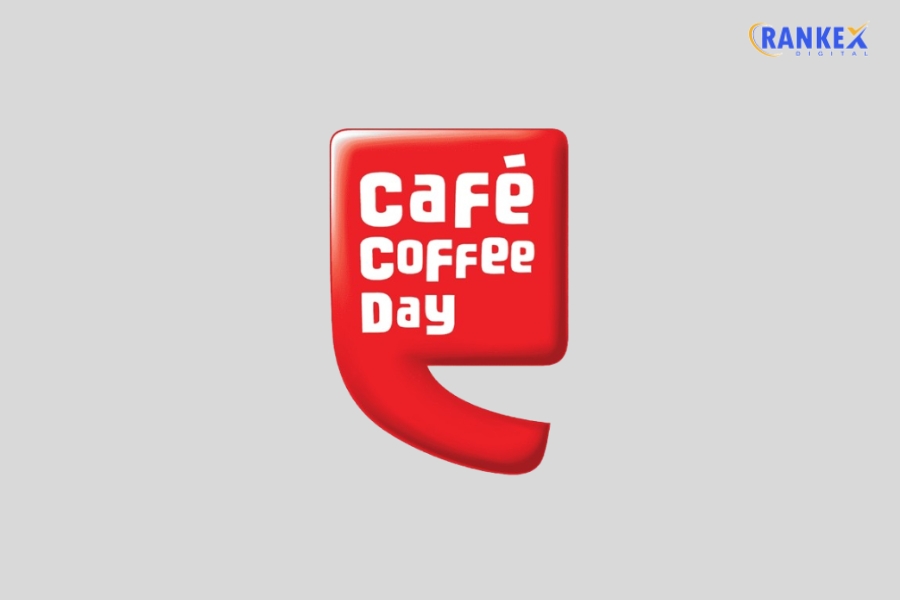
Café Coffee Day was founded in 1996 by V.G. Siddhartha in Bangalore, India. Starting as a single café, CCD quickly expanded across India, becoming the largest coffee chain in the country. Its unique offerings, including a variety of coffees, snacks, and a relaxed atmosphere, have helped it carve out a strong market position.
Quick Stats About Café Coffee Day
| Attribute | Details |
|---|---|
| Founder | V.G. Siddhartha |
| Year Founded | 1996 |
| Origin | Bangalore, Karnataka, India |
| No. of Outlets | 1,750+ |
| CEO | Malavika Hegde |
| Company Type | Private |
| Revenue | Approx. $230 Million |
| Key Competitors | Starbucks, Barista, Costa Coffee |
SWOT Analysis of Café Coffee Day
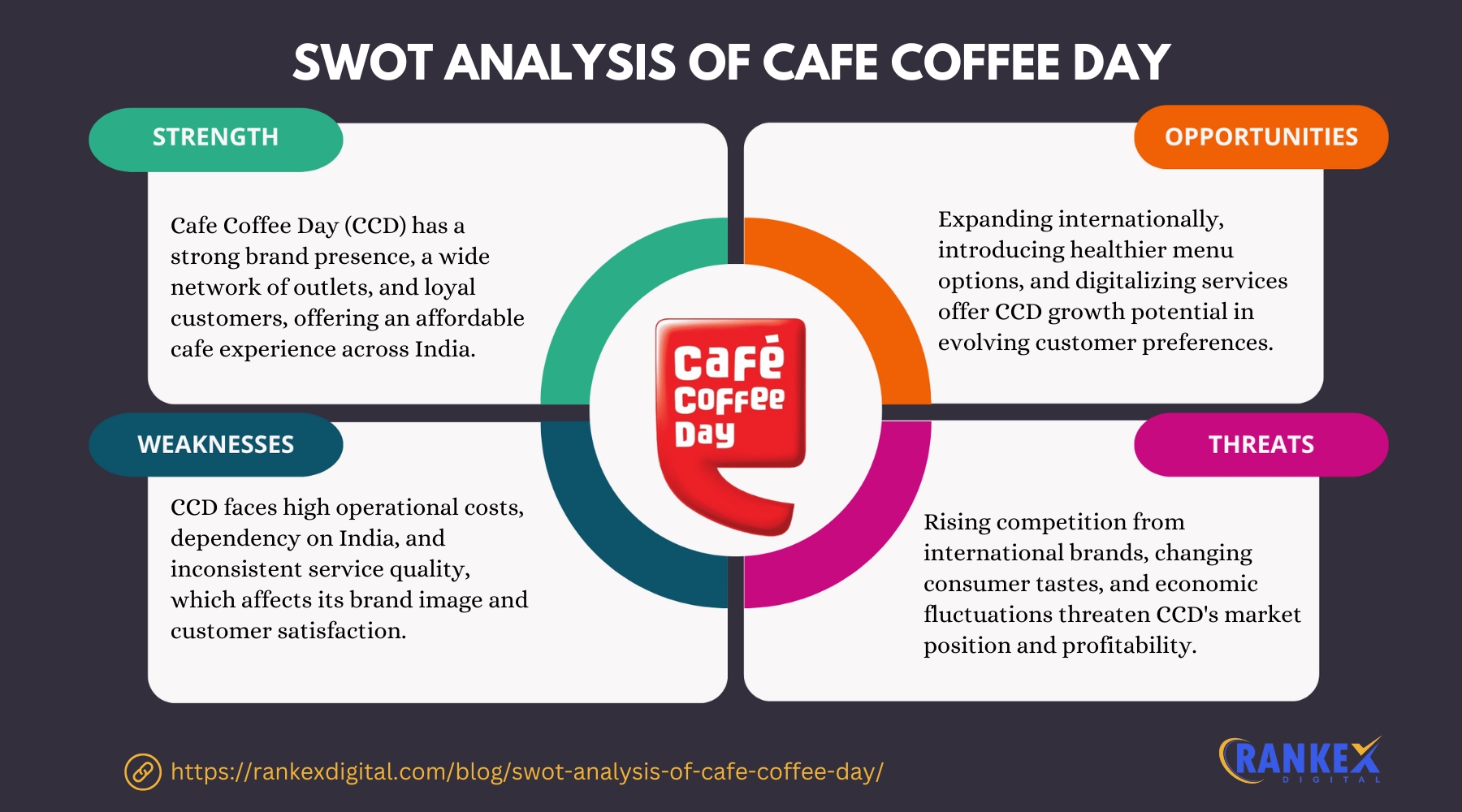
Strengths:
- Strong Brand Recognition: Café Coffee Day (CCD) is one of the most recognized coffee chains in India. Its brand name has been built over the years through consistent marketing, high-quality service, and a commitment to delivering a great coffee experience. This strong recognition fosters customer loyalty, especially in urban and semi-urban areas where it has become a social hub for various age groups, especially students and young professionals.
- Extensive Outlet Network: With over 1,750 outlets across India, CCD boasts a strong geographical presence. This network gives it an advantage over competitors in terms of availability and accessibility. Having a wide reach in both metropolitan cities and smaller towns helps CCD maintain a competitive edge.
- Affordable Pricing: CCD’s pricing strategy is targeted at the mass market, particularly appealing to younger consumers such as college students and early-career professionals. This affordability makes it accessible compared to international chains like Starbucks, which tend to price their products higher in India.
- Diversified Product Range: Unlike some of its competitors, CCD offers not just coffee, but also a variety of food items—ranging from sandwiches and snacks to desserts and cold beverages. This allows it to cater to a broader range of tastes and preferences, enhancing customer satisfaction and increasing the potential for cross-selling products.
- Comfortable Ambiance: CCD outlets are designed with a focus on providing a cozy and relaxed atmosphere. This makes them ideal spaces for casual meetings, socializing, studying, or unwinding, which is appealing to the modern lifestyle. The café culture itself is a major draw for customers looking for a place to relax outside their homes or offices.
Weaknesses:
- Financial Instability: CCD has faced financial challenges in recent years, including issues with debt management. These financial constraints can affect its ability to expand operations, invest in new technologies, or enhance the customer experience across its outlets. This instability is a major hindrance in terms of long-term strategic growth.
- Inconsistent Service Quality: While some CCD outlets provide excellent customer service, others have faced criticism for poor service quality, whether it’s slow service, unprofessional staff, or inconsistent product quality. This inconsistency can negatively impact customer satisfaction and harm the overall brand perception.
- Limited International Presence: CCD is primarily focused on the Indian market, with only a small international presence. This limits its exposure and growth opportunities outside India, especially in regions where coffee culture is growing. Brands like Starbucks have a much stronger international presence, which poses a challenge for CCD in expanding its global footprint.
- Over-reliance on Coffee Sales: A significant portion of CCD’s revenue comes from coffee sales. If consumer preferences shift or competition intensifies in the coffee segment, CCD could face revenue fluctuations. Additionally, this over-reliance could make the business more vulnerable to market changes, such as shifts towards healthier beverage options or non-coffee alternatives.
- Lack of Innovation in Menu: Compared to global competitors like Starbucks, CCD has been relatively slow in innovating its menu. While Starbucks frequently introduces seasonal drinks, unique blends, and limited-time offerings, CCD has been less proactive in this area. This lack of innovation could make it harder for CCD to keep up with changing consumer tastes and preferences.
Opportunities:
- Expansion in Tier II and III Cities: There is a growing demand for branded coffee and café chains in smaller towns and cities across India. With rising disposable incomes and urbanization, these markets present a significant growth opportunity for CCD. By focusing on tier II and III cities, CCD can tap into new customer segments and increase its market share.
- Leveraging E-commerce: The shift towards online ordering and delivery services, accelerated by the pandemic, presents an opportunity for CCD to expand its reach. By enhancing its e-commerce platform, CCD can enable delivery through mobile apps or partner with popular delivery services like Zomato or Swiggy, making its products accessible to customers who may not be able to visit the outlets in person.
- Partnerships and Collaborations: CCD could explore collaborations with delivery platforms, retail brands, or even other popular food and beverage chains. These partnerships can help improve brand visibility, attract new customers, and increase sales. Strategic alliances can also help CCD diversify its product offering and target different demographics.
- Focus on Health and Wellness Products: As consumers become more health-conscious, there is a growing demand for healthier food and beverage options. CCD could capitalize on this trend by introducing low-calorie drinks, sugar-free or plant-based options, and healthier snacks, which would attract the increasingly health-aware consumer base.
- Introduction of Loyalty Programs: Implementing a loyalty program could foster customer retention and increase repeat business. CCD could reward frequent visitors with discounts, free drinks, or exclusive offers, helping to create a sense of brand loyalty. A well-structured loyalty program would not only benefit the customer but also enhance the café’s customer data collection for personalized marketing.
Threats:
- Intense Competition: CCD faces tough competition from both international brands like Starbucks and local café chains. Starbucks, with its global appeal and superior brand value, has a strong presence in India. Additionally, local players are expanding their networks, offering competitive pricing, and increasing their product offerings, which can make it harder for CCD to maintain its market share.
- Changing Consumer Preferences: As health-consciousness rises, consumers are demanding healthier food and beverage options. CCD needs to adapt to these changing preferences, incorporating options like plant-based beverages, superfoods, and organic ingredients into its menu. If CCD fails to meet these evolving needs, it could lose customers to more health-focused competitors.
- Economic Instability: Economic downturns and fluctuations in consumer spending can impact discretionary purchases like café visits. In times of economic uncertainty, consumers might cut back on spending, directly affecting the revenue of café chains like CCD. Moreover, increasing inflation could lead to higher costs for raw materials and operational expenses.
- Rising Operational Costs: With the increasing costs of real estate, labour, and raw materials, CCD could face challenges in maintaining profitability. The rising cost of operations, coupled with the fixed costs of running a large network of outlets, might reduce CCD’s margins and make it difficult to expand or innovate as quickly as needed.
- Cybersecurity and Data Privacy Concerns: As CCD embraces digital transformation, including mobile apps, online ordering, and digital payments, the company faces growing risks related to cybersecurity and data privacy. Breaches in customer data or disruptions in its digital platforms could significantly harm its reputation and customer trust.
Top Competitors of Café Coffee Day
- Starbucks
- Barista
- Costa Coffee
- McCafé (McDonald’s)
- Blue Tokai Coffee Roasters
Conclusion
The SWOT analysis of Café Coffee Day highlights the brand’s strong market presence, extensive network, and loyal customer base as primary strengths. However, CCD faces challenges due to financial instability, inconsistent service quality, and intense competition.
By leveraging opportunities in smaller cities, enhancing its e-commerce platform, and innovating its product offerings, CCD can work towards overcoming its weaknesses and maintaining a strong position in India’s café industry.
Frequently Asked Questions
What are the main strengths of Café Coffee Day?
Café Coffee Day’s primary strengths include its strong brand recognition, extensive outlet network across India, affordable pricing, diversified product range, and a comfortable ambience, making it a popular choice for social gatherings.
What challenges has CCD faced recently?
CCD has struggled with financial instability and debt issues, which have impacted its growth potential and operational expansion plans. Additionally, service quality varies across outlets, and there’s intense competition from both local and international brands.
How is Café Coffee Day planning to address competition from brands like Starbucks?
CCD can focus on its strengths by expanding into Tier II and III cities, offering value-driven pricing, and introducing loyalty programs to retain customers. It may also consider diversifying its menu with health-focused products.
Does Café Coffee Day have an international presence?
CCD has a limited international presence compared to competitors, focusing primarily on the Indian market. However, expanding globally could be a potential future opportunity for the brand.
What are the future opportunities for Café Coffee Day?
Opportunities for CCD include expanding into smaller cities, leveraging e-commerce for online orders, collaborating with delivery platforms, introducing health-focused products, and launching loyalty programs to strengthen customer retention.

